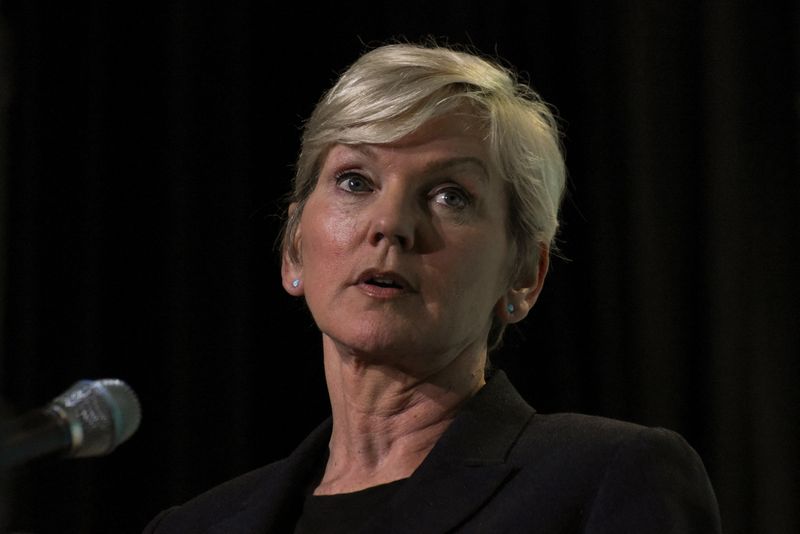By Timothy Gardner
WASHINGTON (Reuters) -The Biden administration is offering $12 billion in grants and loans for auto makers and suppliers to retrofit their plants to produce electric and other advanced vehicles, Energy Secretary Jennifer Granholm said on Thursday.
"While we transition to EVs, we want to ensure that workers can transition in place, that there is no worker, no community left behind," Granholm, a former governor of car-manufacturing state Michigan, told reporters in a call.
Speeding grants and other subsidies to fund conversion of existing auto plants to build electric vehicles could help the White House blunt criticism from automakers and the United Auto Workers (UAW) union over proposed environmental rules aimed to help usher in the EV era.
The UAW has warned that a rapid change could put thousands of jobs at risk in states such as Michigan, Ohio, Illinois and Indiana.
Last week UAW members voted overwhelmingly in favor of authorizing a strike at the Detroit Three automakers if an agreement over wages and pension plans is not reached before the current four-year contract expires on Sept. 14.
On Thursday UAW President Shawn Fain cheered the announcement, saying the policy "makes clear to employers that the EV transition must include strong union partnerships with the high pay and safety standards that generations of UAW members have fought for and won."
President Joe Biden said in a release that "building a clean energy economy can and should provide a win-win opportunity for auto companies and unionized workers who have anchored the American economy for decades."
Fain has vowed to save a Jeep factory in Belvidere, Illinois, that Stellantis (NYSE:STLA) has put on track to shutter. The automaker has left open the possibility that the factory could get a new product with government aid.
When asked about the chances that the grants could keep that factory open, Granholm said plants that had been built up around communities are "prime for taking advantage of these funding opportunities."
There will be no specific labor requirements for companies to obtain the funding, but projects that have better labor conditions will have a greater chance of receiving the funding, an Energy Department official said on the call.

The administration will also offer $3.5 billion in funding to domestic battery manufacturers, Granholm said.
For the advanced vehicles, $2 billion in grants will come from the Inflation Reduction Act which was passed by Democrats last year, and $10 billion in loans will derive from the Energy Department's Loans Program Office.